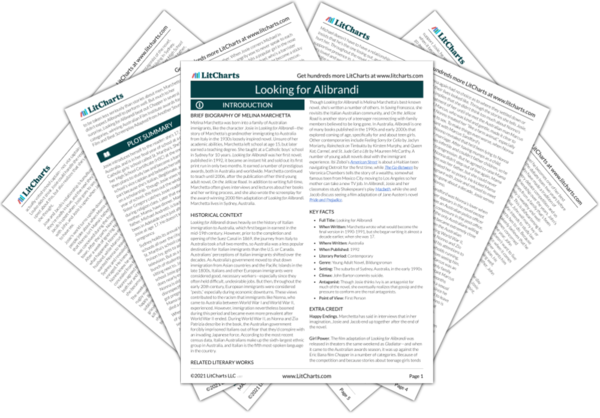Again, Josie suggests that it’s normal for her to constantly be in conflict with loved ones like Mama and Nonna. Revealing that her biggest problem is her wealthy classmates shows that Josie is very concerned with a person’s economic status. This also implies that Josie
isn’t wealthy. Because of the first-person narration, definitive statements—like that Josie’s wealthy classmates don’t have problems—reflect Josie’s personal perception and thus are not necessarily fact. Josie is an unreliable narrator.


